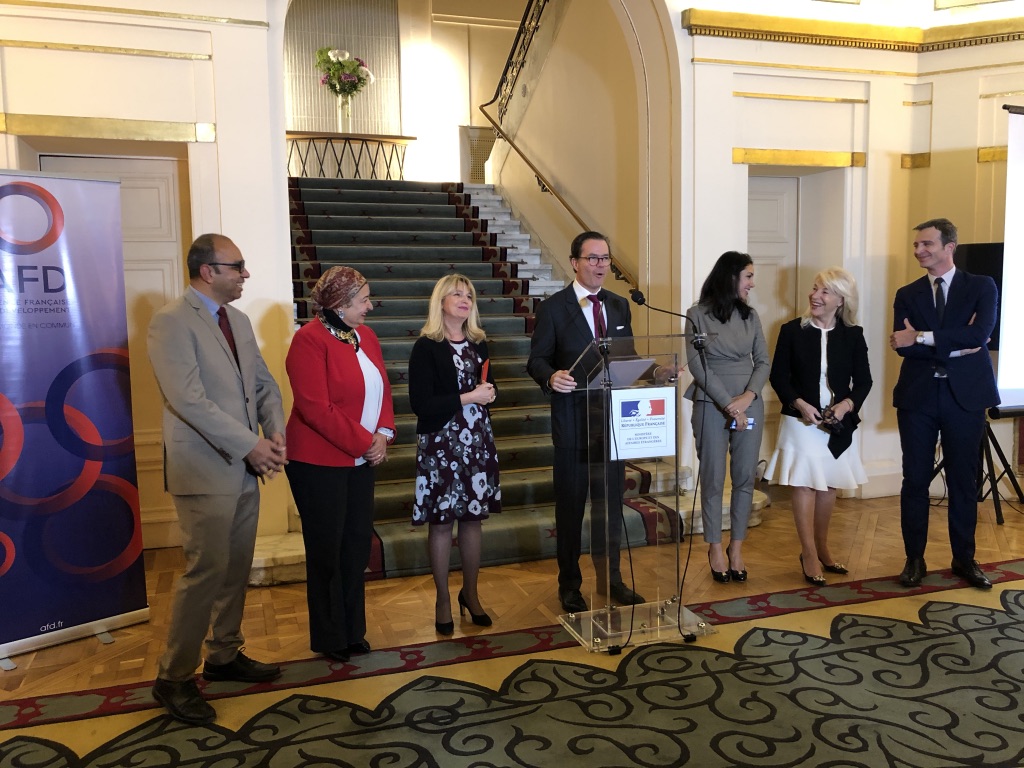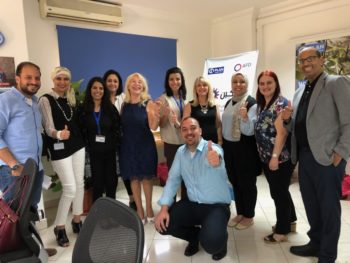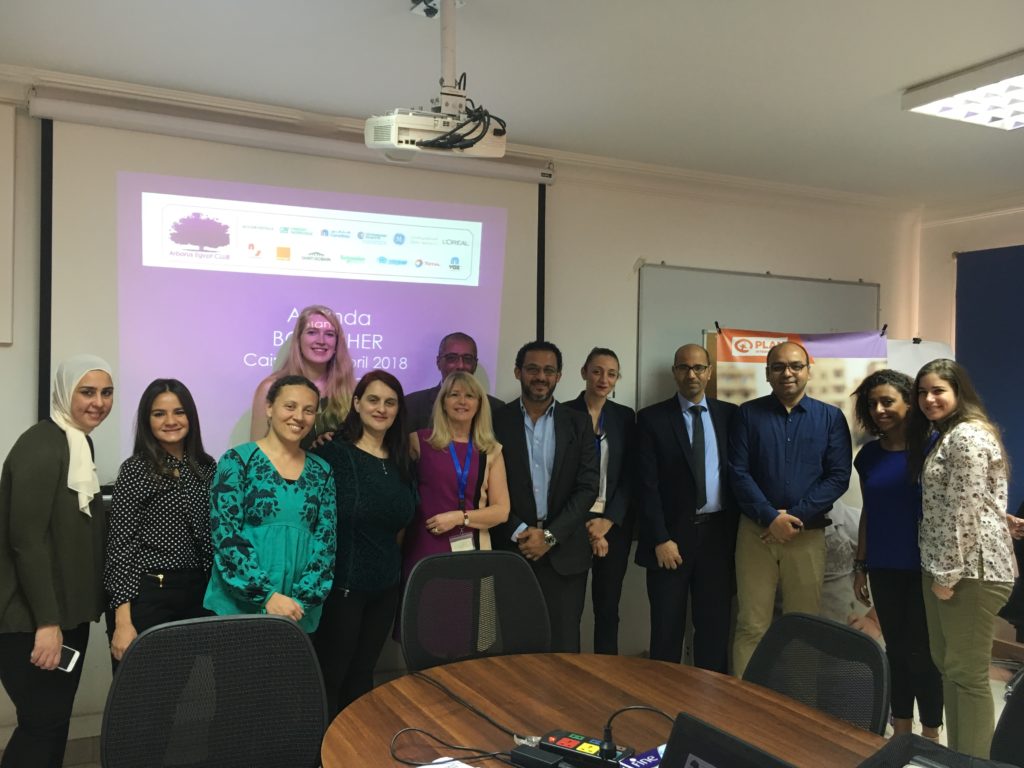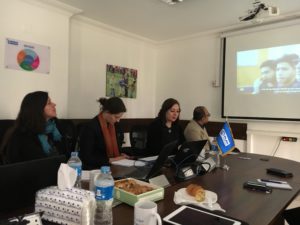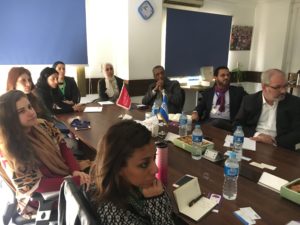INTERNATIONAL :
OUR ACTIONS IN EGYPT
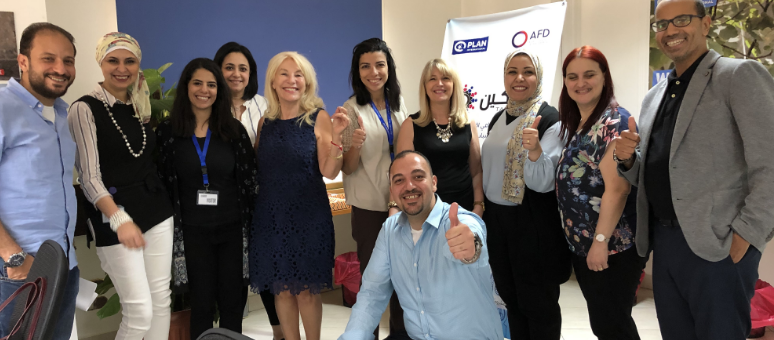
BOOST HER BY ARBORUS IN EGYPT
PARTNER OF THE PROJECT PIONEERS FOR THE FUTURE
Context and issues of the project
Supported by Nicole Ameline, Member of Parliament for Calvados, President of the Cedaw Committee from 2013 to 2015, and several times Minister of Equality and Professional Parity, this project was born out of her desire to continue Sister Emmanuelle's commitment to the Chiffonniers du Caire, which is considered to be a model of good practice in the field of development, which goes beyond the Egyptian context and which makes Sister Emmanuelle an emblematic image of the fight against poverty and the empowerment of women.
With more than 10 years of political support for the Equality Label, of which Arborus has been a partner since its inception, Nicole Ameline wanted to use this initiative to transpose the French example of professional equality to the countries on the southern shore of the Mediterranean, which are experiencing a phase of democratic, economic and social transition in the wake of the Arab Spring.
Egypt has been targeted as the pilot country for this initiative, which, given the conditions of its implementation, is expected to be extended to other countries in the region, including Morocco, Palestine and Tunisia.
Conditions and status of women in Egypt
In this context of political transition, Egyptian women have much to look forward to in terms of social progress, despite the challenges associated with their status.
Access to education, a lever for human and social development, is still a major obstacle for young women, however: the female literacy rate is 66% in Egypt, 16% lower than for men. Gaps in educational attainment translate into more difficult integration of women into economic life: Egypt was ranked 131 out of 142 countries on the criterion of women's economic participation in the World Economic Forum's 2014 Gender Inequality Report. The same ranking places Egypt 134th out of 142 for women's political participation, and 109th for access to education.
State of the art of vocational training and employment :
Given the low rate of women's participation in the labor force, improving the provision of education and vocational training appears to be an essential lever for women's empowerment and economic empowerment in Egypt.
Perspective and objectives:
The main objective of the project is to allow a better integration of women into the economic fabric in the private sector, by providing them with vocational training adapted to the needs of the market through the network of French and Egyptian partner companies, in a logic of public-private partnership.
Two main sub-objectives underlie this project:
Strengthen the employability of young girls from disadvantaged backgrounds and enable them to complete an internship that will lead to a job in
the key.
Enable the dissemination of norms, good practices, standards of professional equality, and globally the dissemination and
the appropriation of the Equality Label within companies.
While the first stage in Cairo is a project in itself, this model of public-private partnership for vocational training and education is intended to be repeated for new institutions and makes this first stage a true pilot project that should serve as a model.
The Ministry of Vocational Training (now attached to the Ministry of Education) has reiterated its wish for its country to be the pilot of this partnership approach and is seeking to give priority to the most remote regions of Egypt, particularly in Upper Egypt.
We can thus imagine the involvement of French companies located in different regions of the country, but also the involvement of local companies, which could eventually also commit to women's rights, parity and professional equality.
This project is of multiple interest:
Advances in women's rights and empowerment
Empowerment of women through their integration into the workforce
Role in peace, stability and security in a region plagued by political, economic and migratory tensions
Innovative approach combining a multi-actor partnership: public, private, bi-multilateral and civil society, local, regional and
international.
It is therefore essential to emphasize that this pilot project is intended to be extended and to serve as a model: its success is crucial to ensure that the partnership with companies is maintained and that they are interested in committing to the education of young girls and, more broadly, to professional equality in Egypt and the Mediterranean.
From 2015 to 2017
First feedback by Cristina Lunghi : https://www.youtube.com/watch?v=Ilh2MmeMET8&t=6s
Project partners from 2015 to 2017
French Institute of Egypt (IFE)
Ministry of Foreign Affairs and International Development (MAEDI)
Sawiris Foundation
UN Women
Youth with a Vision Egyptian NGO
Arborus and the Arborus CLUB Egypt
At the heart of the project is the partnership with the private sector to ensure access to the world of work for young girls. Six major French CAC 40 companies, members of the Arborus endowment fund and the Professional Equality Club, are already involved in the project: Crédit Agricole, Orange (present in Egypt with the Mobinil group), l'Oréal, General Electrics Energy, the Accor group, Lafarge etc.
The role of the Arborus Egypt Club :
1- The partner companies, through their human resources departments, define their needs in terms of skills and manpower, and their recruitment capacity in the relevant fields. This contribution allows the development of a professional training curriculum and the selection of partner institutions.
2- Throughout the program, companies accompany the students. Companies will be asked to participate in the program through trainers recommended by them or from their own employees, especially in technical areas. The companies will also be able to provide the students with a tutor/contact point in the company, who could present the partner companies, intervene in front of the students for workshops, or carry out visits of the installations during the training. Finally, it is up to the companies to offer internships to the girls and to accompany them during this phase.
3- Finally, the partner companies are called upon more broadly to develop a gender and employment policy on a national scale. This platform, in addition to bringing together and coordinating the actors of professional equality, will also be able to act as a job exchange for students to ensure their professional integration.
The objective is to anchor a culture of gender equality among partner companies in order to strengthen women's power and leadership through access to decision-making positions. The Arborus Foundation and UN Women will accompany the companies in this process of progress.
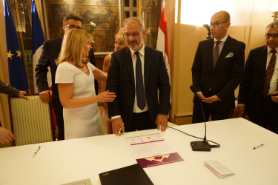
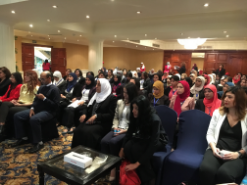
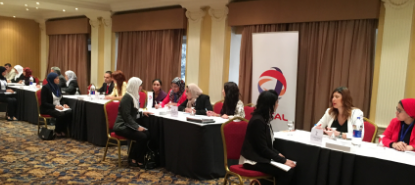
In 2018
First assessment
Lessons learned and preparation for phase 2
The lessons are numerous. They concern :
- Pre-selection of young women whose first criterion must be motivation
- The contents of the training courses have been redesigned to be even more operational.
- The recruitment process should be left to the companies
- The development of the Arborus BOOST HER
- The diffusion of the GEEIS label.
- The establishment of a new partnership with PLAN International and its Egyptian office.
From 2019-2023
Launch of phase 2 at the French Embassy in Cairo with the companies of the Arborus Egypt Club.
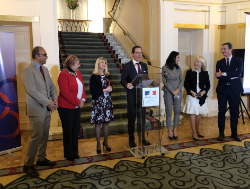
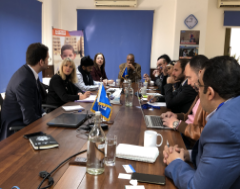
Speech by Cristina LUNGHI :
"Mr. Ambassador, Madam Minister, dear Nicole,
First of all, I would like to thank France, my country, for granting me the honor of renewing my commitment to equality between women and men in the world of work, here in Egypt, with the "Pioneer for the Future" project.
I would also like to thank the CNF and the SAWIRIS foundation for their confidence in us, which allows us to continue the unique experimentation we have been conducting since 2015 with French companies, particularly within the framework of the ARBORUS EGYPT CLUB. This link has been strengthened thanks to Hassan Behnam, DG of the CCI France Egypt.
The project we are leading consists in giving young disadvantaged women access to employment but above all to a corporate culture committed to equality, inclusion and the objectives of SD.
We hope at the end of this adventure to be able to change mentalities for more equity, to give to work its dimension of individual freedom and to participate in the collective effort for a better world.
To do so, I put at the disposal of PLAN, the field operator, my expertise and the methodological tools I have created. One of them is the GEEIS international standard, for equality, inclusion and SDGs. We will try to train with the French leaders, in Egypt, and with the CCI FE; Egyptian companies in this way of innovation and modernity.
This is in a few words my commitment, to make the values of France shine through this project.
I would like to warmly thank the companies that have trusted me for so many years, always present, always faithful to their commitments, always positive.
We will soon re-sign a Charter, as in previous years, so that this commitment is symbolically "set in stone".
Mr. Ambassador, dear Nicole; ladies and gentlemen, thank you."
NEWS EGYPT
ARBORUS RELAUNCHES THE BOOST HER PROJECT IN EGYPT
On February 02, 2020, Arborus relaunched the "BOOST HER" HR process as part of the Pioneer Project for the...
CAIRO - CLUB ARBORUS EGYPT
On June 12 and 13, 2019, Arborus participated in the mission to Cairo organized by Nicole Ameline VP of...
ARBORUS EGYPT CLUB MEETING NOVEMBER 28, 2017 IN CAIRO
Cristina Lunghi gathered the companies of the Arborus Egypt Club. The BOOST HER process allows the recruitment of young girls...
ARBORUS CLUB EGYPT LAUNCHES PARTNERSHIP WITH INTER NATIONAL PLAN IN EGYPT
Cristina Lunghi, President of the Arborus association, is a doctor of law. She advocates for making professional equality the pillar of an effective...
ARBORUS CLUB EGYPT LAUNCHES PARTNERSHIP WITH PLAN INTERNATIONAL IN EGYPT
On April 29, 2018 Arborus Club Egypt started preparations for the launch of the national phase of the...
BOOST HER MEETING 28TH JANUARY 2018 IN CAIRO
This meeting aimed to prepare the new stage of the BOOST HER process and prepare for enlargment in Alexandria and...
BOOST HER MEETING 28TH JANUARY 2018 IN CAIRO
Cristina Lunghi, President of the Arborus association, is a doctor of law. She pleads for professional equality to become the pillar of a new world.
CLUB ARBORUS EGYPT 28TH JANUARY 2018
On April 29, 2018 the Arborus Egypt Club started preparations for the launch of the national phase of the Professional Equality Project in (...)
EGYPT - ARBORUS FUND PARTICIPATION IN THE UPM INTER-MINISTERIAL CONFERENCE ON NOVEMBER 7, 2017
The Arborus Fund is present at the Union for the Mediterranean inter-ministerial conference in Cairo. The...

